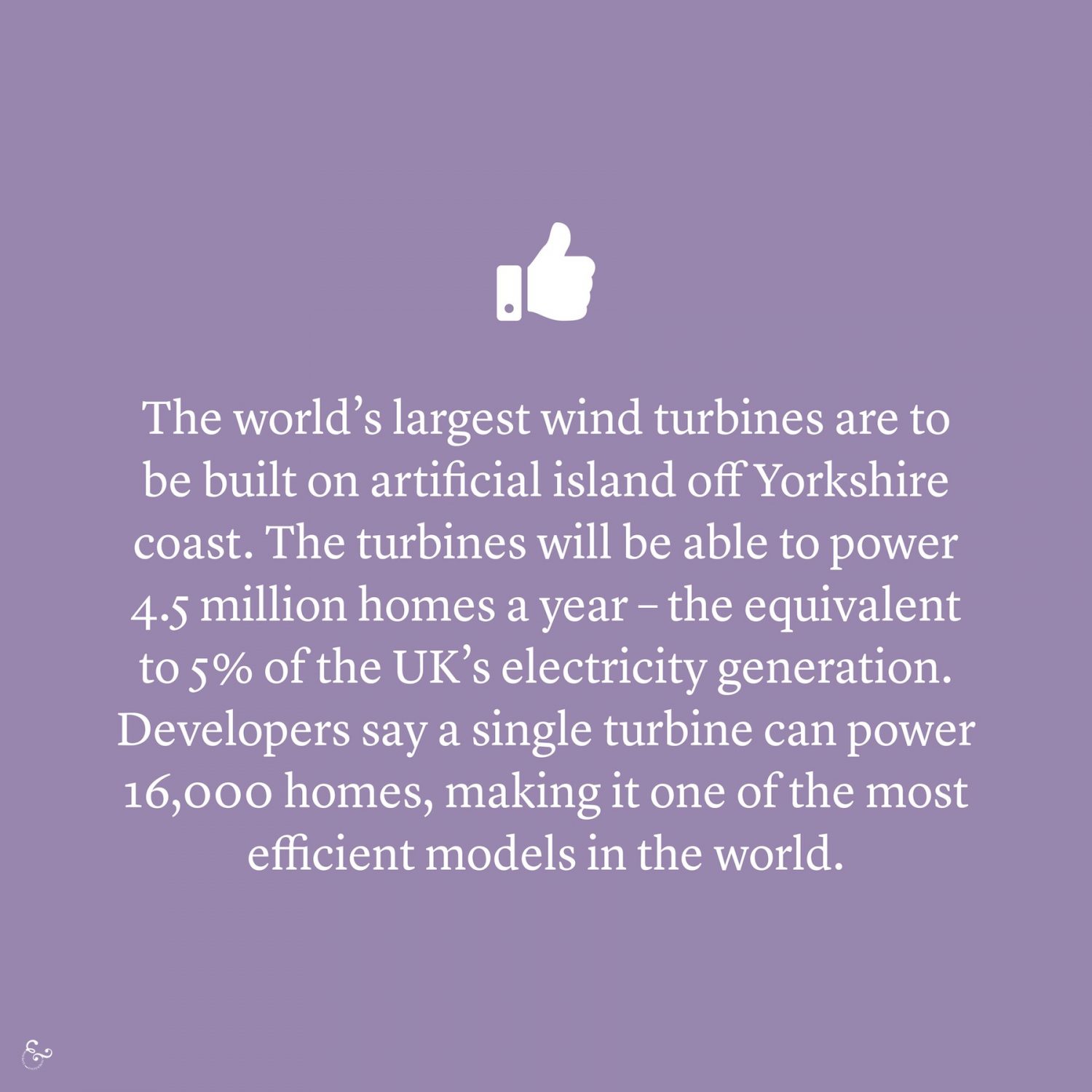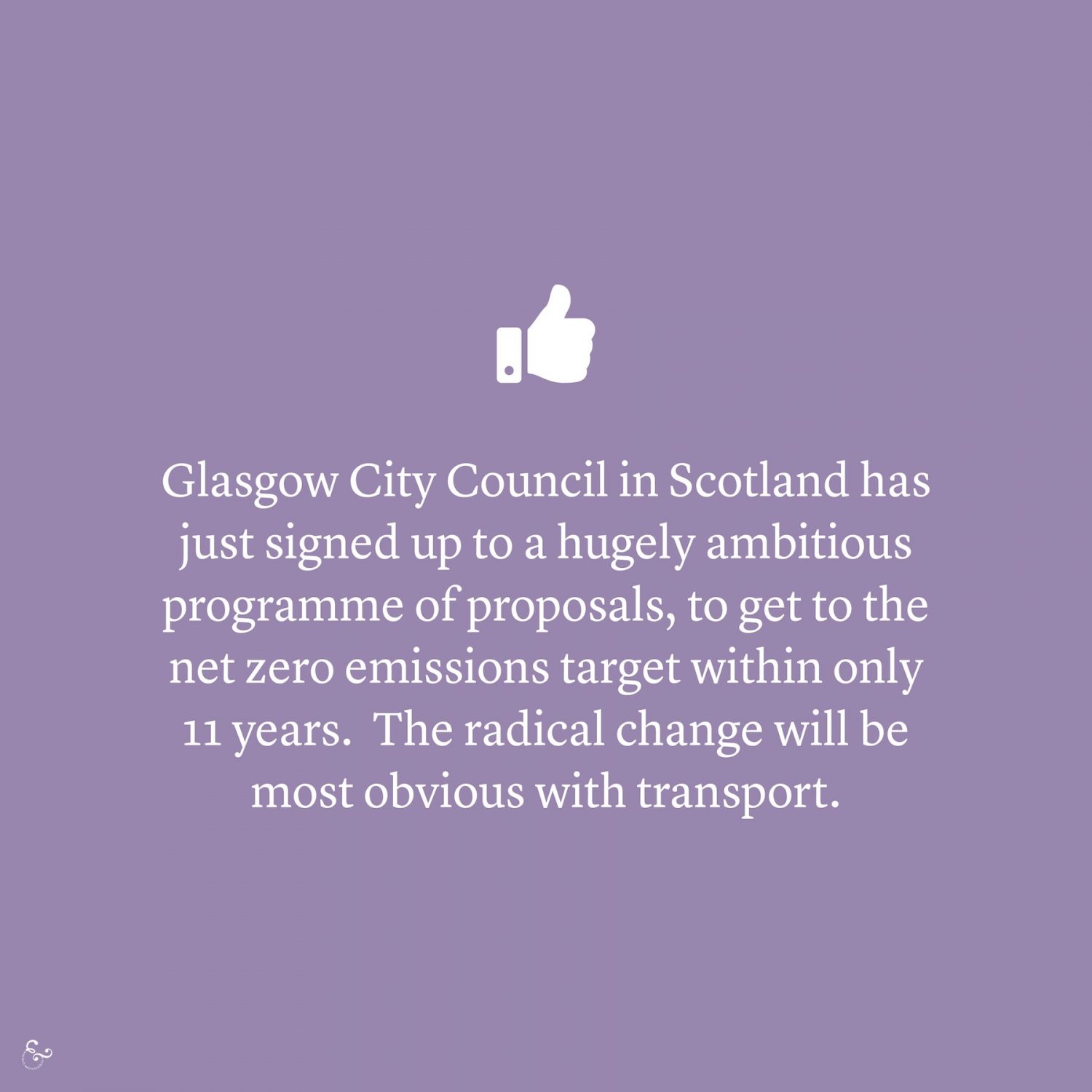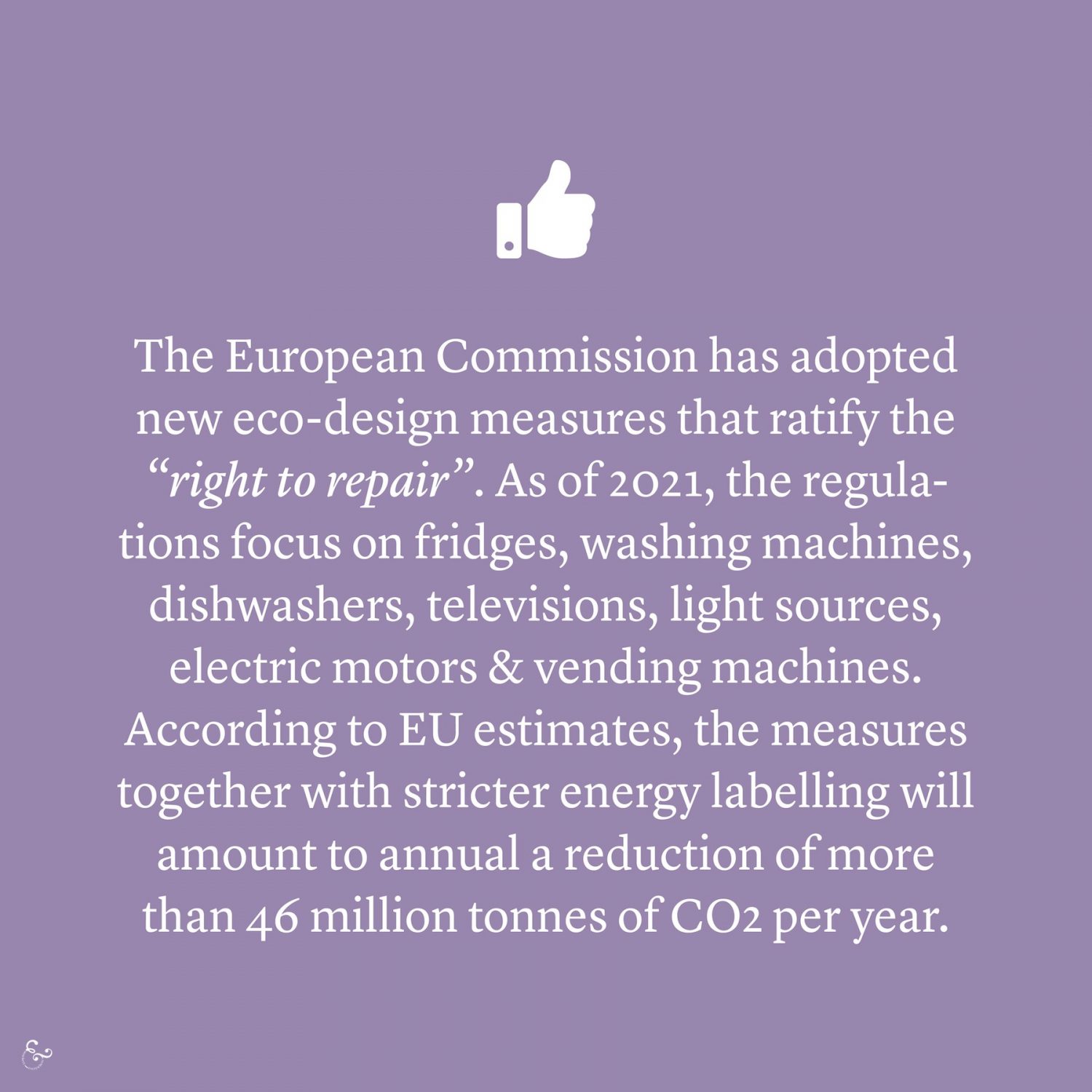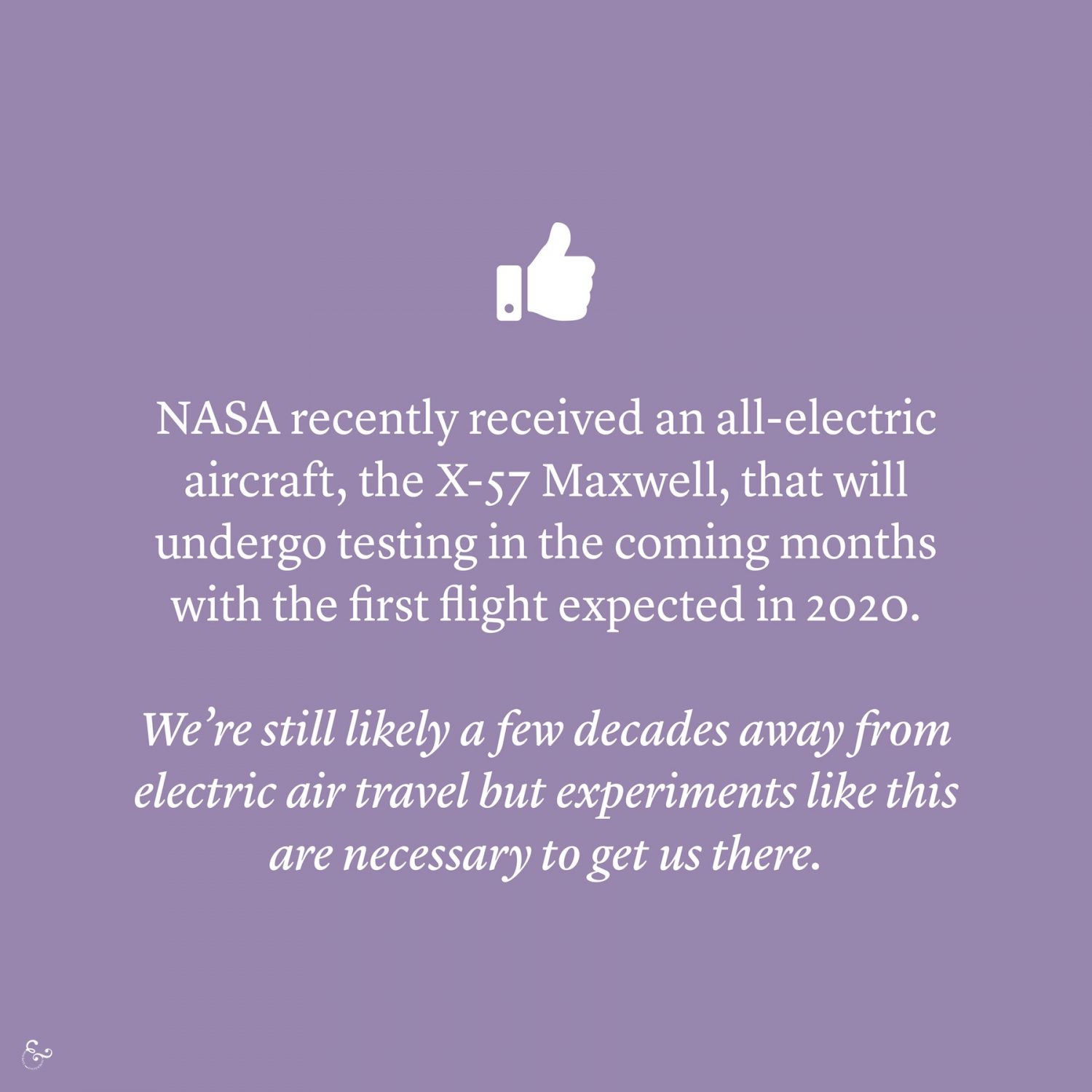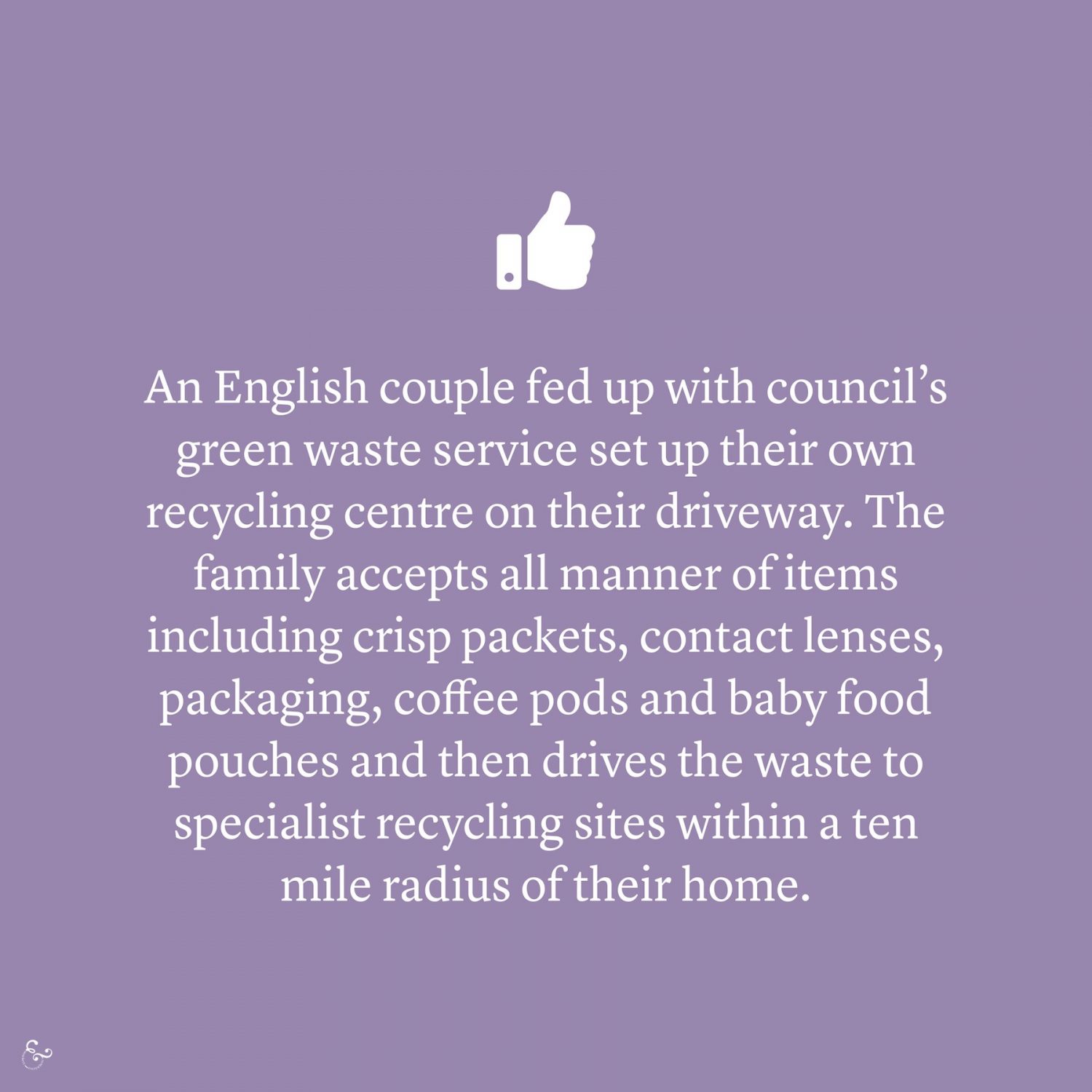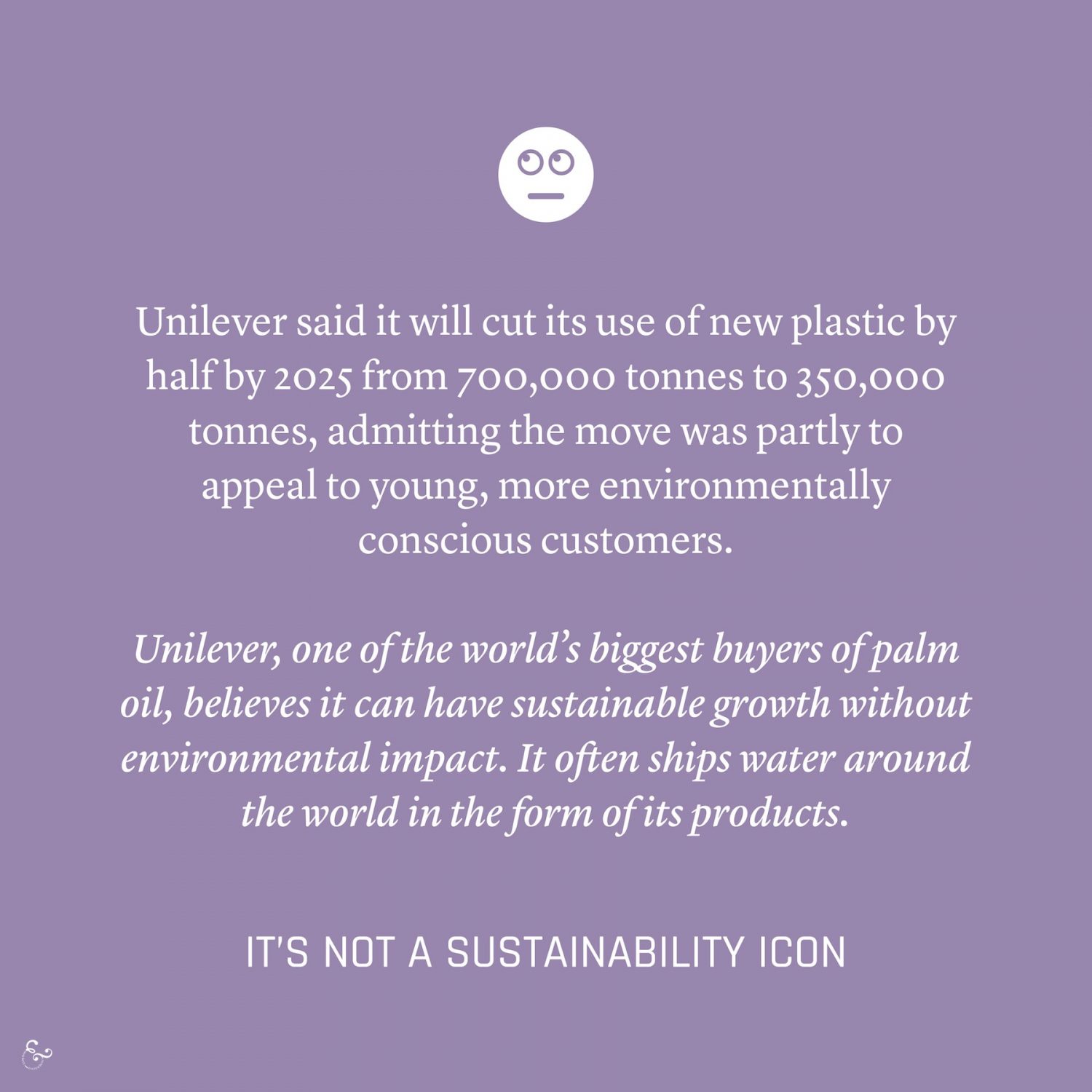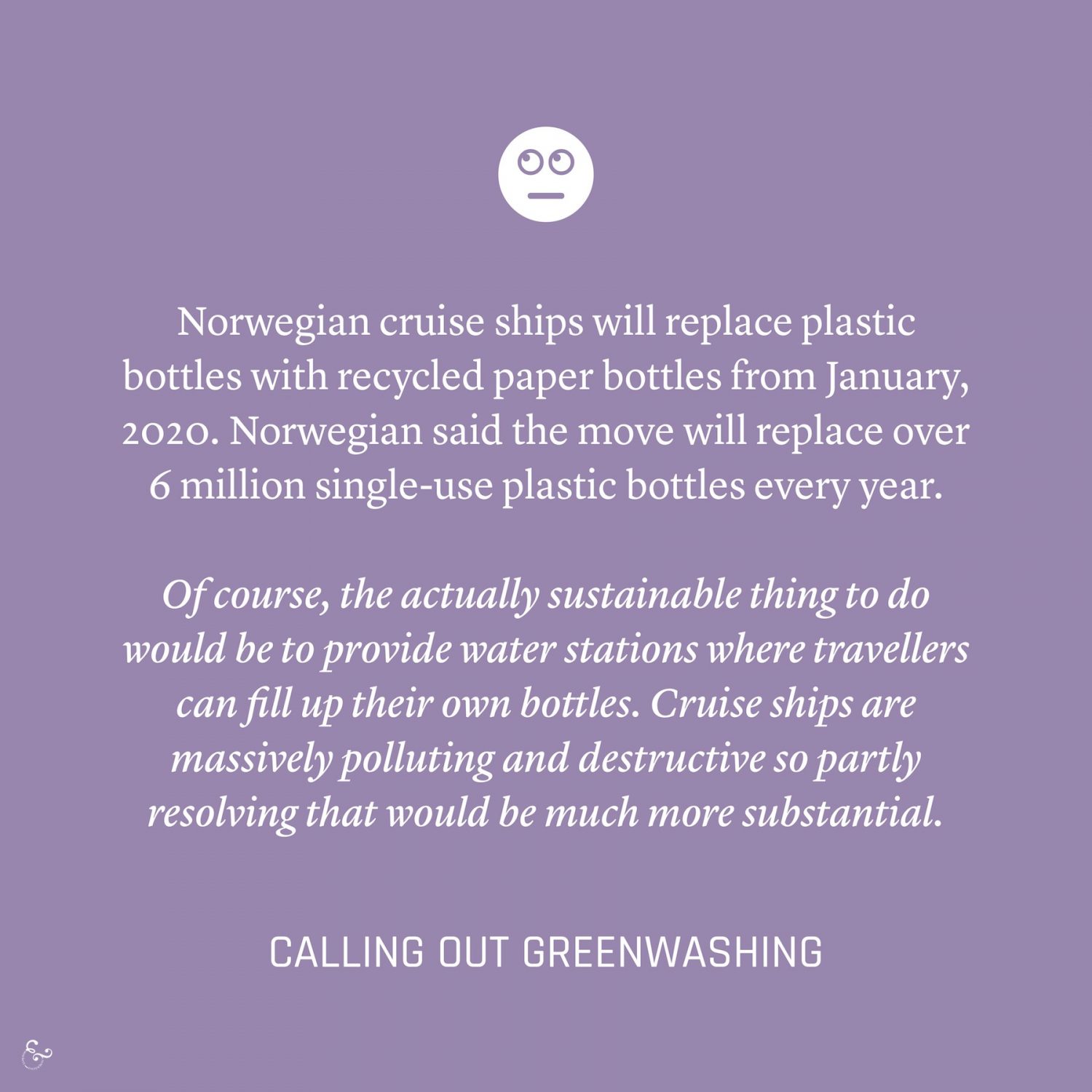Every week we do a major roundup of environmental news across the world. It is really important we all know it and share it, but it can also be pretty disheartening. The bad news is nearly always on a much, much larger scale than the good. The next few years are probably going to look the same as we enter climate feedback loops, profit incentives continue to grow, population increases and we continue to stall on our Paris Agreements. We’re interested in education, understanding systems, and the levers we can all pull for change.
But during this mammoth effort every week, we also get to see lots of little good news stories pass through our initial filter which we’re posting here. We can use these to inspire us, give us ideas in our own communities and potentially scale them up. Environmental good news can often be fairly greenwashed so we’re not interested in that and won’t consider it good news. If you see a story and decide to implement it where you live, we’d absolutely love to hear about it! Please tag us in or email us and let’s create a world of lots of local change which collectively has big impact.
The world’s largest wind turbines are to be built on artificial island off Yorkshire coast (Dogger Bank Wind Farms). The turbines will be able to power 4.5 million homes a year – the equivalent to 5 percent of the UK’s electricity generation. Developers say a single turbine can power 16,000 homes, making it one of the most efficient models in the world. (Independent / Renew Economy / The Guardian)
- Glasgow City Council in Scotland has just signed up to a hugely ambitious programme of proposals, to get to the net zero emissions target within only 11 years. The radical change will be most obvious with transport, including at least a look at taking over the buses and making them free. It extends to heating buildings, use of plastic, school meals and political leadership. (BBC)
- The European Commission has adopted new eco-design measures that ratify the “right to repair”, requiring electronic appliances to be repaired and recycled – in line with circular economy objectives. As of 2021, the regulations focus on refrigerators; washing machines; dishwashers; electronic displays (including televisions); light sources and separate control gears; external power supplies; electric motors; refrigerators with a direct sales function (for example fridges in supermarkets, vending machines for cold drinks); power transformers; and welding equipment. According to EU estimates, the measures together with stricter energy labelling will amount to annual a reduction of more than 46 million tonnes of CO2 per year. (Inside Waste / EC / Dezeen)
- NASA recently received an all-electric aircraft, the X-57 Maxwell, that will undergo testing in the coming months with the first flight expected in 2020. An electric power system for aviation can be more efficient than conventional engines, unlock new aircraft designs, and when drawing on clean energy, emit zero greenhouse gases. Electric propulsion also stands to be less mechanically complicated and could, in theory, reduce operating costs. We’re still likely a few decades away from electric air travel but experiments like this are necessary to get us there. (Vox)
- An English couple fed up with council’s green waste service set up their own recycling centre on driveway. The family accept all manner of items including crisp and cracker packets, contact lenses, Tetra Pak packaging, coffee pods and baby food pouches. Hannah then drives the waste to specialist recycling sites within a ten-mile radius of their home. (Nottingham Post)
Conflicted
C40 Cities Summit / The 94 C40 member cities, which span the globe, contain more than 700 million citizens and one quarter of the global economy. The world’s biggest cities, voiced their backing for the plan and said it reaffirmed their “commitment to protecting the environment, strengthening our economy, and building a more equitable future by cutting emissions”. Mark Watts, the C40 executive director, told the Guardian that the leaders of the US, Brazil, Australia, Russia and Turkey were now “essentially representatives of the fossil fuel industry”, so it was important for “the next most powerful group of politicians”, the mayors of the biggest cities, to step up. But, after all that, they’re just words. And technology and green growth won’t save us from ourselves. (The Guardian / Curbed)
Calling out greenwashing
Unilever / Commercial giant Unilever, which owns more than 400 brands, said it will cut its use of new plastic by half by 2025 from 700,000 tonnes to 350,000, admitting the move was partly to appeal to young, more environmentally-conscious customers. To get there it will cut its absolute usage by 100,000 tonnes – by switching to selling reusable packs, concentrated refills and using alternative materials, including recycled plastics in its containers. Unilever, one of the world’s biggest buyers of palm oil, believes it can have sustainable growth without environmental impact. (Phys / Investico / The Guardian)
Google / Google has made “substantial” contributions to some of the most notorious climate deniers in Washington despite its insistence that it supports political action on the climate crisis. Google is also listed as a sponsor for an upcoming annual meeting of the State Policy Network (SPN), an umbrella organisation that supports conservative groups including the Heartland Institute, a radical anti-science group. It donates to such groups, people close to the company say, to try to influence conservative lawmakers, and – most importantly – to help finance the deregulatory agenda the groups espouse. It has also donated undisclosed sums to the Cato Institute, which has voiced opposition to climate legislation and questioned the severity of the crisis. Google has also made donations to the Mercatus Center, a Koch-funded thinktank, and the Heritage Foundation and Heritage Action, a pressure group that said the Paris agreement was supported by “cosmopolitan elites” and part of Barack Obama’s “destructive legacy”.
Bill McKibben, a prominent environmentalist who has been on the frontline of the climate crisis for decades, said Google and other companies were engaged in a “functional greenwashing” given the contradiction in their public pronouncements and private donations. He said Google and other technology companies had also not used their own lobbyists to advocate for change on climate. (The Guardian)
Norwegian Cruise Lines / Norwegian cruise ships will replace plastic bottles with recycled paper bottles from January, 2020. Norwegian said the move will replace over 6 million single-use plastic bottles every year. Of course, the actually sustainable thing to do would be to provide water stations where travellers can fill up their own bottles. And you know, cruise ships rely on pristine environments to send their tourists to but their pollution & destruction on these same environments is huge. (Adweek / CNN)

